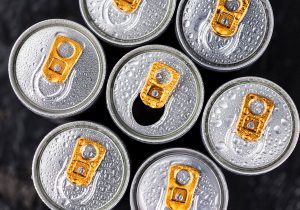
Understanding how energy drinks may impact your health
If you’re one of the many people who reach for energy drinks for that essential buzz and boost, get ready for a much needed wake-up call. Energy drinks surged onto the market—and into our hands—with the promise and purpose of powering you through a long day at the office, a tedious workout, or a late-night study session. No wonder millions of people are seen sipping and swigging from these brightly colored bottles and sleek, shiny cans at all hours of the day. While there’s no denying that these super-charged sippers can be good for a burst of energy, they may be bad for your body. So, quench your need to know what goes into these energy drinks and how their invigorating ingredients can affect your health for better or worse. Then, get a taste of why these feel-good fixes may not be good for all ages and why you may want to rethink your drink.
The focus on energy drinks
Why is everyone buzzing about energy drinks? These energizing elixirs pack an immediate rush of energy into candy-colored packages and candy-like flavors with flashy names and catchy slogans that are marketed as being healthy. They are fueled by a range of stimulating ingredients, from caffeine and sugar to vitamins, amino acids, and herbs. Just by looking at their labels, they appear to be a feel-good energy fix, but you may not feel the same once you see how they may affect your health.
The ups of energy drinks
There’s no denying that energy drinks come with plenty of perks, as multiple studies have shown. These drinks are powered by some powerful ingredients that can boost your energy and improve your endurance. They are used by shift workers and long-distance drivers to increase concentration and fight fatigue. Energy drinks have also been shown to improve memory, reaction time, and concentration on tasks, thereby reducing mental fatigue and improving brain function measurements. Researchers point to both caffeine and the combination of caffeine and sugar as the driving forces behind these benefits. However, these bubbly beverages can be filled with hefty doses of caffeine, sugar, and additives that can do more harm than good when consumed excessively.
A jolt to the system
Since energy drinks are promoted as being healthy, they can lead to drinking an unhealthy amount. While the occasional can or container isn’t any cause for concern, most of the health concerns surrounding these beverages are due to the effects of consuming the large amounts of caffeine, sugar, and other stimulants they contain. Other problems come from consuming them with alcohol—which has become common among young adults and college kids—and can worsen the ways they affect your health. Some of the biggest dangers of these drinks include the following health concerns:
- Irregular heartbeat
- Heart failure
- High blood pressure
- Anxiety
- Insomnia
- Addiction
- Dehydration
- Weight gain
- Type 2 diabetes
- Dental problems
- Stomach issues
- Chronic headaches
- Aggressive behavior
Energy drinks aren’t kids’ stuff
While they may be marketed to everyone, energy drinks certainly aren’t safe for everyone. First of all, kids and caffeine don’t mix. Even though research shows that around 30% of older children and 50% of adolescents guzzle energy drinks on a regular basis, the American Academy of Pediatrics recommends that energy drinks should not be consumed by kids under the age of 12, while teens between the ages of 12 and 18 should have no more than 100 milligrams of caffeine each day. Add to that the scoops of sugar or sugar-substitutes that can be harmful to kids in high doses and energy drinks are not ideal for growing bodies.
Should adults pick up these pick-me-ups?
Knowing that energy drinks aren’t smart for kids, are they safe for adults? According to experts, most healthy adults should consume no more than 400 milligrams of caffeine a day, which is equivalent to about four cups of coffee or two energy drinks. However, be aware that the caffeine content listed on the label can be misleading. Many large bottles may contain several servings, plus drink makers aren’t required to count the amount of caffeine in the herbal extracts that their energy drinks contain, so you may be getting twice or three times more caffeine than you expect. And if you’re pregnant or breastfeeding, less is best when it comes to caffeine. As such, energy drinks are not recommended because they contain higher than recommended amounts of caffeine and other stimulating ingredients that may be harmful to your baby. If you have an underlying health condition or any concerns about reaching for these revitalizers, speak to your SignatureMD-affiliated doctor to see if you should skip these sips.
If you’ve been frequently turning to energy drinks to get more get-up-and-go, consider reaching for a normal cup of coffee instead.